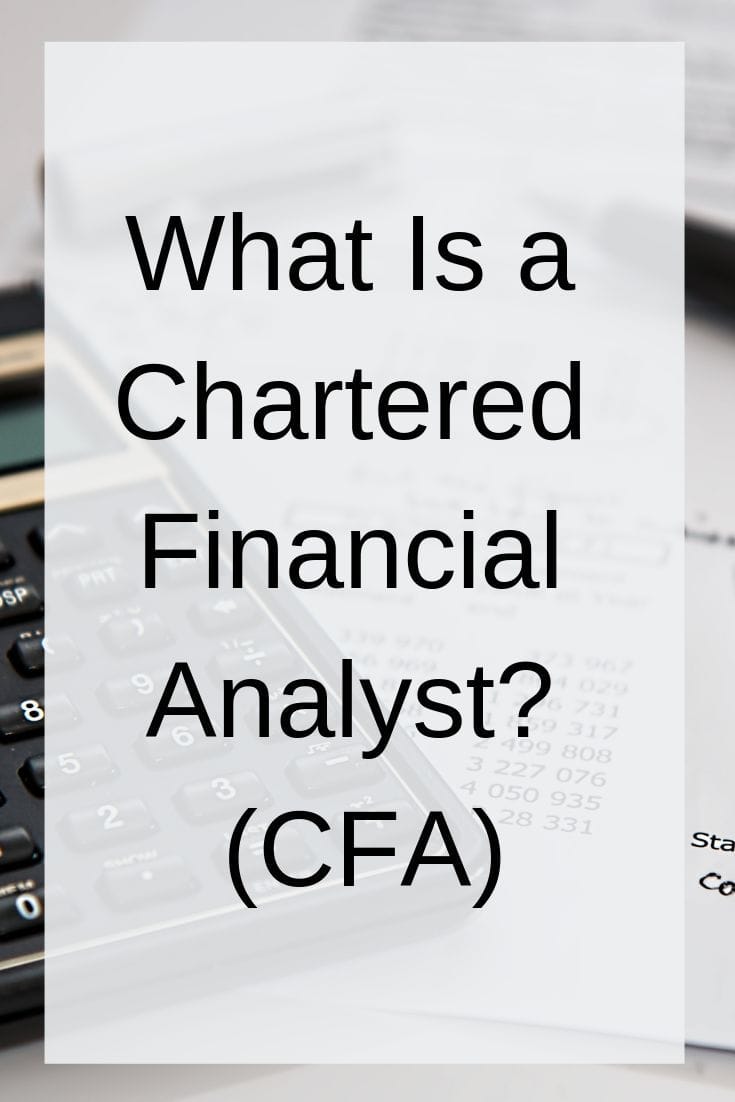Becoming a Chartered Financial Analyst (CFA) is no small feat. It’s a journey that requires dedication, hard work, and a passion for finance. For those with the ambition to take their financial career to the next level, the CFA designation is often the ultimate goal. Recognized globally and highly respected, it can open the doors to a wealth of career opportunities in investment management, financial analysis, and corporate finance. If you’re considering this path, you’re in the right place. Let’s explore what it takes to become a CFA charterholder, from understanding the program to preparing for the exams and reaping the rewards.
1. What is the CFA Program?

The CFA program is a rigorous, three-level examination designed to ensure that you have the expertise to navigate the complex world of finance. Whether you’re analyzing stocks, building portfolios, or managing client wealth, the CFA program teaches you the skills necessary to make sound financial decisions.
- Level I: The basics. Level I tests your understanding of core financial concepts, including ethics, financial reporting, quantitative methods, and corporate finance. It’s all about laying a solid foundation for the advanced topics that come next.
- Level II: This level dives deeper. You’ll tackle more complex financial analysis and valuation techniques. The focus shifts to the practical application of what you’ve learned, with heavy emphasis on case studies and asset valuation.
- Level III: The final stretch. At this level, the focus is on portfolio management and wealth planning. You’ll need to integrate all the knowledge from the previous levels and demonstrate your ability to make investment decisions based on real-world scenarios.
Each level builds on the last, so by the time you complete the CFA program, you’ll have a comprehensive understanding of investment management.
2. Who is Eligible to Take the CFA Exams?

Before you dive into the CFA program, it’s essential to understand who can apply. The CFA Institute sets clear eligibility criteria:
- Education: You’ll need a bachelor’s degree or be in the final year of your undergraduate studies to begin the program. Alternatively, if you have four years of professional work experience in a finance-related field, you can also qualify.
- Work Experience: While you don’t need to have professional experience to sit for Level I, to earn the CFA charter, you’ll need at least four years of work experience in investment decision-making. This could include jobs in financial analysis, portfolio management, or related fields.
- Ethical Standards: The CFA Institute places a strong emphasis on ethical behavior. You must commit to following their code of ethics and professional conduct, ensuring the highest standards of integrity and professionalism throughout your career.
3. What’s the CFA Exam Like?
The CFA exams are known for their challenge, with each level designed to test your knowledge, critical thinking, and ability to apply concepts in real-world financial situations. Here’s what you can expect:
- Level I: This exam consists of 240 multiple-choice questions, split into two sessions. These questions will test your knowledge of a broad range of financial topics. Expect to spend hours mastering everything from economics to ethics, all in preparation for this foundational level.
- Level II: The format becomes more intense. Instead of multiple-choice questions, you’ll face item sets—case studies followed by a series of questions. Expect to dig deep into the analysis and application of complex financial concepts, particularly those related to asset valuation.
- Level III: This level is all about strategy. The exam is split between constructed-response (essay) questions in the morning and item sets in the afternoon. Here, you’ll be required to use all the knowledge from the previous levels to make detailed portfolio management decisions.
4. How Should You Prepare for the CFA Exams?
Passing the CFA exams isn’t something you can do overnight. It takes time, effort, and careful planning. Here’s how to prepare:
- Study Plan: Creating a study schedule is essential. Most candidates spend at least 300 hours studying for each level. That might sound daunting, but breaking it into manageable chunks over several months can make it feel more achievable.
- Study Materials: The CFA Institute provides the official curriculum, but many candidates supplement it with third-party study guides, practice exams, and online courses. Find what works best for your learning style.
- Practice, Practice, Practice: The best way to ensure you’re ready is by taking practice exams. They’ll help you familiarize yourself with the format and improve your time management skills.
- Join a Study Group: Many candidates find it helpful to study in groups. Sharing ideas and discussing difficult topics can deepen your understanding and keep you motivated.
5. The Cost of Becoming a CFA

Pursuing the CFA designation is an investment—both in terms of time and money. The costs can add up, but they are an investment in your future. Here’s a breakdown of typical expenses:
- Enrollment Fees: You’ll pay an initial enrollment fee when registering for Level I, and then a registration fee for each subsequent level. The fee varies depending on when you register—early birds save money.
- Study Materials: While the CFA Institute provides curriculum books, many candidates opt for additional study materials or prep courses, which can add to the cost.
- Exam Fees: Each level of the exam has its own registration fee, and these fees are higher the later you register, so it’s best to plan ahead and register early.
Overall, the cost of completing the CFA program can range between $3,000 and $5,000, depending on the resources you choose to invest in.
6. Why Should You Become a CFA?
Now, you may be wondering: Why go through all this effort? Here are a few reasons why obtaining the CFA designation is so valuable:
- Industry Recognition: The CFA charter is a globally recognized credential that signifies your expertise and commitment to the highest professional standards. It’s recognized by top employers across the financial world, opening doors to numerous job opportunities.
- Career Advancement: As a CFA charterholder, you can expect better career prospects, including promotions and salary increases. Many financial institutions prioritize CFA candidates for roles in investment management, financial analysis, and portfolio management.
- Global Opportunities: The CFA program is recognized worldwide, which means the charter can open up opportunities beyond your local market. If you’re looking to work internationally, the CFA can help you stand out.
- Networking: As a CFA, you gain access to a global network of financial professionals. This community offers valuable opportunities for mentorship, career advice, and collaboration.
7. Conclusion
Becoming a CFA charterholder is a challenging yet rewarding journey. It demands hard work, dedication, and a commitment to excellence. But for those who are willing to put in the effort, the CFA designation provides a world of opportunities—both in terms of career advancement and personal growth. If you’re ready to take on the challenge, the CFA program could be the key to unlocking your potential and taking your career in finance to new heights. So, why wait? Start your CFA journey today .
Read : 10 way to Identify Untruthful People in Your Life be stronger




Your article helped me a lot, is there any more related content? Thanks!
Your point of view caught my eye and was very interesting. Thanks. I have a question for you.
Your point of view caught my eye and was very interesting. Thanks. I have a question for you. https://www.binance.info/join?ref=P9L9FQKY
Your point of view caught my eye and was very interesting. Thanks. I have a question for you.
Can you be more specific about the content of your article? After reading it, I still have some doubts. Hope you can help me.
GetResponse is a game-changer for email marketing! It offers powerful automation, user-friendly tools, and excellent deliverability—making campaigns seamless and effective. Plus, their analytics help optimize performance effortlessly. Great news! Now you can get 30% off until April 5th. Perfect time to upgrade or try it out! 🚀 Follow the link.
Thanks for sharing this valuable post! Quick heads-up— the cheapest cloud web hosting just dropped its prices even further, but only until April 17th! Snag this unbeatable deal before it’s gone!
Your article helped me a lot, is there any more related content? Thanks!
Thanks for sharing. I read many of your blog posts, cool, your blog is very good.
Great insight! Managing cloud servers often seems complex, but Cloudways takes the stress out of the equation. Their platform delivers powerful performance without the usual technical headaches. It’s an ideal solution for those who want scalable hosting without getting lost in server configurations. Definitely worth checking out for a smoother hosting journey. Keep up the excellent work! Explore more through the link.
Thank you, your article surprised me, there is such an excellent point of view. Thank you for sharing, I learned a lot.
Thank you for your sharing. I am worried that I lack creative ideas. It is your article that makes me full of hope. Thank you. But, I have a question, can you help me?